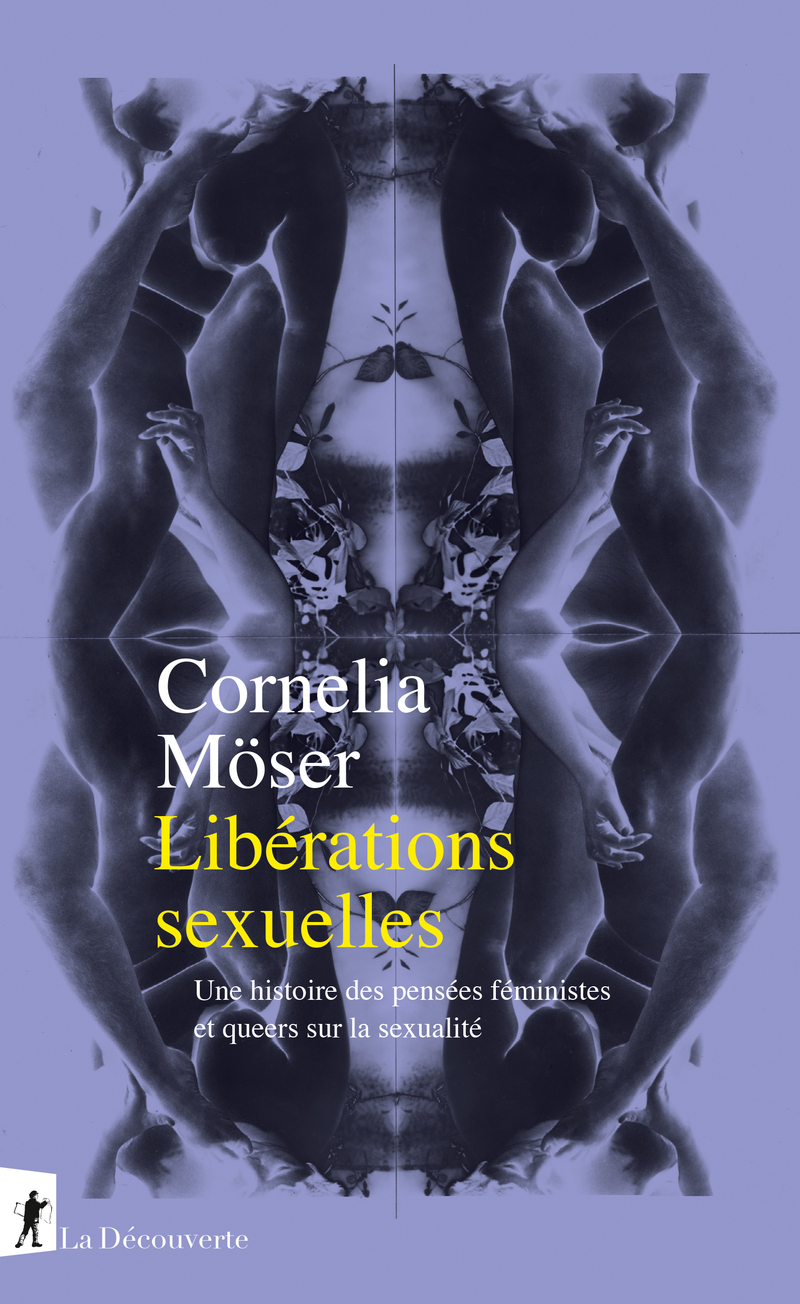Libérations sexuelles
Une histoire des pensées féministes et queers sur la sexualité
Cornelia Möser
Aujourd'hui, la sexualité est une question centrale pour les féministes comme pour les mouvements LGBTQ. Désir, plaisir, maternité, mais aussi violences sexuelles et consentement sont abondamment discutés par les théoriciennes et les militantes. Mais qu'est-ce au juste que la sexualité ?
Cette question bien plus complexe qu'il n'y paraît a traversé l'ensemble des pensées féministes et LGBTQ depuis au moins les années 1960 et ce que l'on a appelé la révolution sexuelle. La sexualité a ainsi pu être considérée comme un outil, voire une condition de la libération des femmes, ou comme un simple espace d'épanouissement des plaisirs et des désirs. Elle a également été perçue comme un obstacle, le lieu par excellence de la vulnérabilité des femmes face à la violence des hommes, ou encore un moyen de détourner les femmes de la lutte pour leur émancipation. Enfin, elle est même devenue chez certaines un critère à l'aune duquel juger du " degré " de modernité d'une nation et hiérarchiser les cultures.
Cet ouvrage passionnant propose une relecture nuancée des théories féministes sur la sexualité, foisonnantes et parfois antagonistes. Retraçant l'histoire intellectuelle et militante du féminisme et des mouvements LGBTQ, il nous plonge au cœur des réunions d'activistes, des débats entre théoriciennes et des manifestations qui se sont déroulées en Allemagne, en France et aux États-Unis depuis plus de soixante ans. En s'intéressant particulièrement aux visions alternatives nées de ces luttes féministes et queers, ce livre entend faire émerger de nouvelles façons de penser l'émancipation des femmes.

Nb de pages : 304
Dimensions : 13.5 * 22 cm
ISBN numérique : 9782348064883
 Cornelia Möser
Cornelia Möser

 Actualités
Actualités

Extraits presse 

2022-06-01 - Marie Fouquet - Livres Hebdo
Passionnante synthèse.
2022-07-01 - Eugénie Bourlet - Lire
Aujourd'hui, face à la violence des politiques conservatrices, les activistes féministes et LGBT risquent de se replier sur la seule défense des droits, au détriment d'un véritable projet de société. Puiser dans ces luttes est pourtant une façon, rappelle Möser, de cultiver de nouvelles utopies.
2022-07-11 - Clémence Mary - L par Libération
Cet ouvrage ouvre des pistes de réflexions particulièrement riches pour penser la sexualité, et notamment l'articulation entre liberté sexuelle, néolibéralisme et nationalisme.
2022-08-29 - Benjamin Dubrulle - Lectures
Vidéos 

Table des matières 

Introduction. La sexualité, un objet historique et un enjeu politique
Bref retour sur l'histoire de la sexualité avant les années 1960
Le sexe historique
Le sexe moderne
Penser la sexualité
1. Libérer le sexe ou se libérer du sexe ?
Le sexe révolutionnaire
Le " Tuntenstreit " à Berlin
Comment les folles peuvent-elles être socialistes ?
Les positions au sein du débat
La folle féministe pour quelle révolution ?
Le lesbianisme radical et politique
Déplacer la main du cul des femmes sur le cul des pédés
Les classes de sexe
Violences sexuelles et viol comme points de rupture avec la gauche
Lesbiennes avant-gardes du mouvement, lesbianisme politique et antiféministe ?
Penser la sexualité dans la théorie féministe
D'où provient la sexualité dans la pensée féministe et que devient-elle ?
Quelle sexualité dans la pensée féministe et LGBTQ ?
2. Le sexe sans la libération
Sexplosion. Comment les femmes jouissent-elles dans le patriarcat ?
Les sex wars en bref
Quatre thèmes des
sex wars
Sortir de sa classe, retourner à sa classe
Consentir au sexe, devenir un soi, vouloir la liberté
Fantaisie et honte dans les politiques de représentation
La femme, les différences et les corps
Qui a gagné les sex wars ?
Violences sexuelles, violences de genre
Le sida et la conjugalisation du sexe
Le sexe queer
3. Après le sexe postmoderne
Le féminisme comme produit et critique de la modernité
Le genre et la sexualité
La folle, la lesbienne et l* trans*
Progrès sexuel, modernité sexuelle
Du côté obscur de la modernité
Le sexe institutionnalisé et désexualisé
Le retour du sexe
L'homonationalisme et la production d'existences impossibles
Troisième et quatrième vagues féministes ?
Retour sur l'émancipation
Désirer plus que la fin des discriminations
Conclusion
Remerciements.












